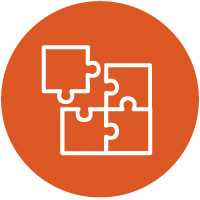
Aim and objectives:
To increase nationwide levels of health literacy by developing necessary cognitive and social skills to access, understand and use health-related information in order to improve their health and maintain good health.
Objectives:
- to develop and implement assessment scales which determine the current state of health literacy of the population;
- to develop and disseminate accurate, accessible and actionable health information;
- to develop and implement software applications related to health, such as in E-NABIZ and MHRS: MHRS is a Central Physician Appointment System; E-NABIZ is a personal health record system which manages personal health information and is used by public and health professionals to view diagnoses and treatments, tests and examination reports, diagnostic imaging records and reports, prescriptions, vaccinations, visits of healthcare services, past and future appointments of patients;
- to increase the health literacy of health care workers;
- to raise social awareness about disease and risk factors;
- to promote healthy lifestyle habits;
- to raise public awareness of appropriate uses of health services;
- to conduct monitoring and evaluation processes.
Target Group:
The aim is to reach all segments of the public, including children, pregnant women, parents, persons with disabilities and older persons.
Method:
The Action Plan is carried out in cooperation with relevant stakeholders such as universities, TÜİK (Turkish Statistical Institute), TRT (Turkish Radio Television), private TV and radio channels, other ministries and NGOs. Ministries and their regional organisations prepare projects related to health literacy falling within the scope of their duty and responsibilities (e.g. the Ministry of Family and Social Services, in collaboration with the Ministry of Health, carry out health literacy trainings for families). Cooperation is in planning with the following institutions:
- TUIK in the implementation of the assessment scales which determine the current state of health literacy of the population;
- Universities for the evaluation of results of the abovementioned assessment scales and preparation of scientific publications;
- TRT, Private Radio/TV Channels, traditional and new media channels for the preparation of content aimed at increasing health literacy for adults;
- Union of Municipalities of Türkiye and relevant NGOs for the organisation and dissemination of activities throughout the country;
- The Turkish Green Crescent Society for raising awareness about addiction;
- World Health Organisation for studies on addiction and rational drug use.
For the efficacy and continuity of activities within the scope of the Action Plan:
- according to the mission, vision and field of work of each institution, a responsible institution is designated among the partner institutions, which is also responsible for submitting a report about the activities every 6 months;
- data regarding the activities carried out is input into the online monitoring platform for activities that are under the responsibility of stakeholder institutions;
- the General Directorate of Health Promotion of the Ministry of Health monitors the process and preparation of progress reports every six months to ensure efficacy and continuity of the activities in the scope of the Action Plan.
Outcome:
Improvements in and continuity of healthy lifestyle behaviours
Added Value:
Low health literacy is the cause of various negative behaviours and outcomes, such as poor understanding of health-related messages, inappropriate use of drugs, increased hospitalisations resulting from the under-utilisation of preventive health services, and the overuse of emergency services. These situations challenge the efficient use of health services, they also lead to low productivity, increased morbidity and mortality, and an increase in the cost of medical expenses. On this basis, it is predicted that by increasing health literacy levels there will be an increase in general quality of life and a significant decrease in health costs.
Outcome:
According to the “Health Literacy Level and Related Factors Survey of Türkiye (2018)”, in accordance with the Scale of Health Literacy of Türkiye-Türkiye Sağlık Okur Yazarlığı Ölçeği-TSOY-32, the health literacy levels of participants are reported as 30.9% (inadequate) and 38% (problematic-limited). Measuring the level of health literacy of all segments of society at regular intervals provides important guidance for actions and policies to improve health literacy.
The expected outcomes of the Action Plan are as follows:
- providing opportunities to access reliable and understandable information for every member of society;
- raising awareness among children and their families, by including health literacy as a subject in the basic education curriculum;
- positive changes in healthy lifestyle behaviours of individuals;
- individuals are involved in the decision-making process for their own treatment and care,
- individuals comply with instructions for treatment, helping to reduce errors in drug (medicine) administration and use;
- individuals have knowledge and take responsibility for their health and diseases they are faced with;
- increasing awareness of society about the fight against substance addiction;
- individuals have knowledge about reproductive health, occupational health and safety, health and care of older persons, patient care, environmental health, chronic diseases, such as hypertension, diabetes, asthma, infectious diseases, and comply with disease management programs;
- increasing participation in health-promotion practices, such as cancer screening, prevention of risky health behaviours, prevention of home accidents, family education programs;
- eliminating the lack of information on preventive health services and using these services effectively;
- reducing inappropriate use of emergency services and hospitalisations;
- reducing health expenditures.


